Israel Faces Growing Pressure Over Gaza Ground Operation Plans
Israel faced growing international pressure Wednesday to rethink plans for a massive ground operation in Gaza where the Hamas-run health ministry says Israel's relentless bombing campaign has killed 700 people in 24 hours.
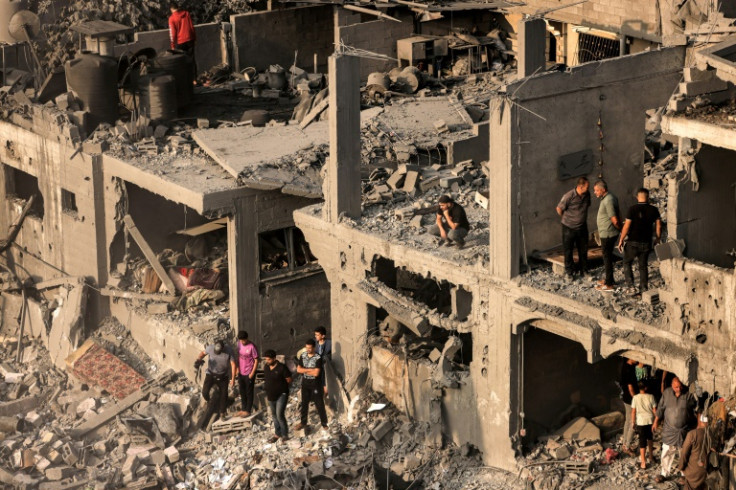
Israel faced growing international pressure Wednesday to rethink plans for a massive ground operation in Gaza where the Hamas-run health ministry says Israel's relentless bombing campaign has killed 700 people in 24 hours.
Alarm is growing over the spiralling death toll in the Gaza Strip, which Israel has been bombarding since October 7 when Hamas gunmen poured across the border killing 1,400 people, mostly civilians, and kidnapping 222 others, officials say.
More than 6,500 Palestinians have been killed, mostly civilians, and there are fears the toll could soar if Israel pushes ahead with a widely expected ground invasion in a bid to destroy Hamas and rescue the hostages.
"A massive intervention that would put civilian lives at risk would be a mistake," French President Emmanuel Macron said in Cairo after meeting Egypt's Abdel Fattah al-Sisi, who also warned a ground operation would cause "many, many civilian casualties".
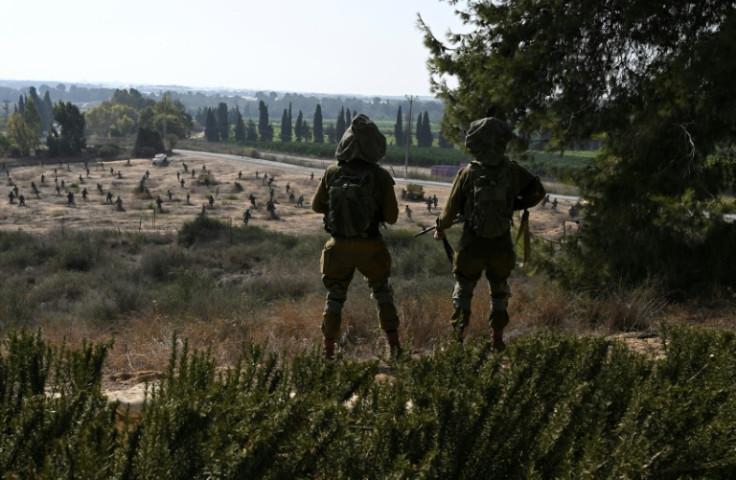
It would also "be unlikely to offer Israel long-term protection" and would be incompatible with respecting "international humanitarian law and the rules of war", Macron said.
His remarks came as alarm grew over the humanitarian crisis in Gaza where hospitals are facing "complete collapse", a top Palestinian medic warned.
The United Nations said 12 of the territory's 35 hospitals have closed due to damage or insufficient fuel.
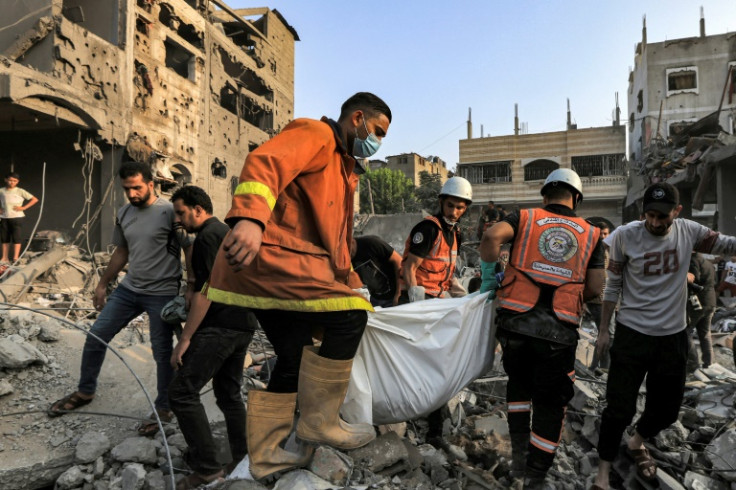
"The hospitals are in a state of complete collapse," said Mohammed Abu Selmeya, head of Shifa hospital in Gaza City, the largest in the territory.
He told AFP that "more than 90 percent of medicines" had run out.
Israel has cut off Gaza's usual water, food and other supplies, and fewer than 70 relief trucks have entered the impoverished territory since the war began.
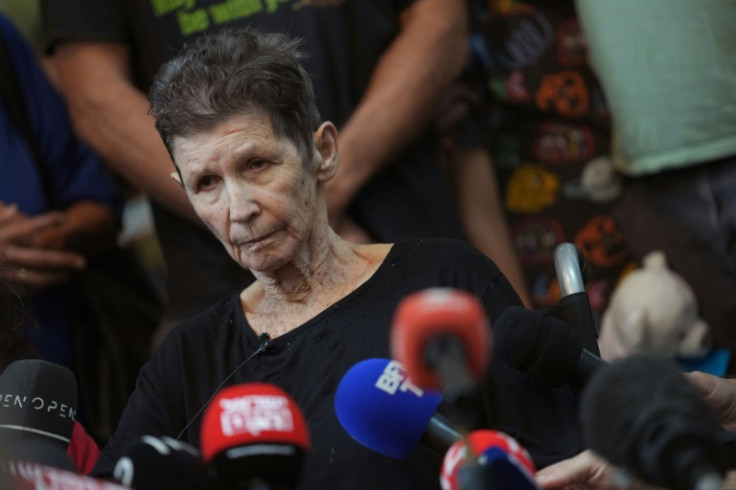
None contained fuel, which Israel fears Hamas will use for weapons and explosives.
Violence has also risen sharply in the occupied West Bank, where health officials said more than 100 Palestinians had been killed, mostly in raids by Israeli troops or in clashes with Israeli settlers.
US President Joe Biden said on Wednesday "Israel has a right... to respond to the slaughter of its people", but said Washington's close ally must follow the laws of war and do everything it can to protect civilians.
US media have reported that Biden has pushed Israeli Prime Minister Benjamin Netanyahu to hold off on a ground invasion while Hamas still holds hostages, but he denied it.
"It's their decision," Biden told a press conference. "I did not demand it. I put it out to him."
The World Health Organization called for Hamas to provide proof of life for the hostages it is holding and release them all on health grounds.
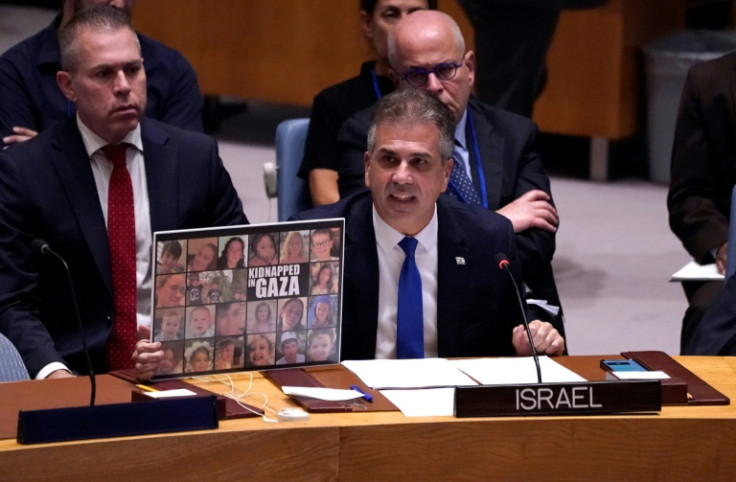
"There is an urgent need for... the immediate release, on humanitarian and health grounds, of all those abducted," WHO chief Tedros Adhanom Ghebreyesus said in a statement.
Biden also cast doubt on civilian casualty figures put forward by Hamas.
"I'm sure innocents have been killed, and it's a price of waging war," he said, "but I have no confidence in the number that the Palestinians are using."
Meanwhile, a divided UN Security Council was to vote on competing draft resolutions on the Gaza war drawn up by Russia and the United States at a meeting due to start at 1900 GMT, diplomats said.
The Russian document, seen by AFP, calls for "an immediate, durable and fully respected humanitarian ceasefire" and "condemns all violence and hostilities against civilians" and also says it "rejects and condemns the heinous attacks by Hamas" of October 7.
The new American draft defends "the inherent right of all States to individual and collective self-defence", and calls for "humanitarian pauses" to let aid into Gaza. It does not mention a ceasefire.
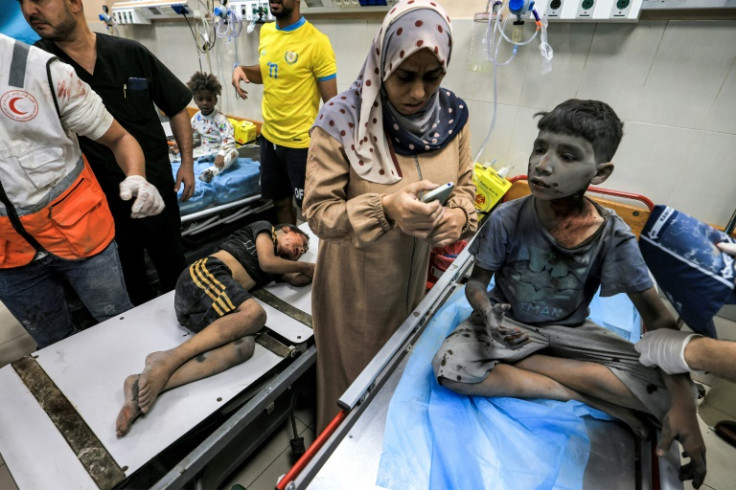
Aid agencies have warned that more people will die if medical equipment, water desalination plants and ambulances stop operating because of a lack of fuel.
Once the generators stop, hospitals will "turn into morgues", the Red Cross has warned.
Hospitals are also struggling with a shortage of medicines and equipment.
"There's not enough anaesthetic," said Ahmad Abdul Hadi, an orthopaedic surgeon working at Nasser hospital in Khan Yunis.
"The wounded are in severe pain but we can't wait for the procedure so we're forced to do the operation. We performed a number of surgeries without anaesthetic. It's tough and painful, but with the lack of resources, what can we do?"
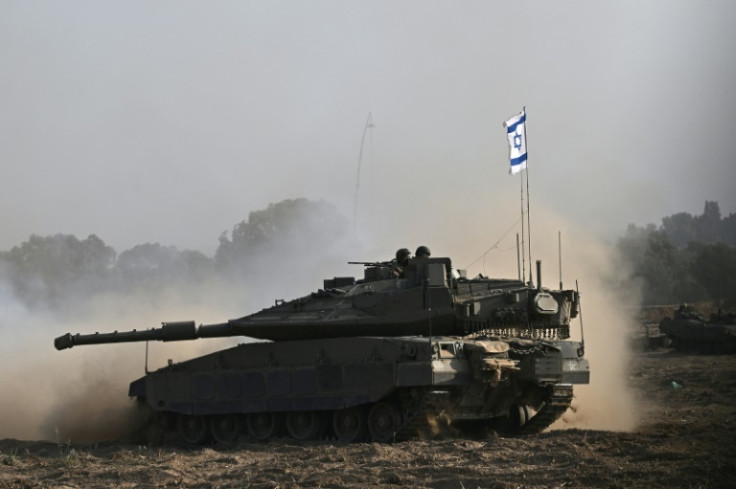
UNRWA, the UN agency for Palestinian refugees, has also said its operations were at breaking point from the shortage of fuel.
"If we do not get fuel urgently, we will be forced to halt our operations in the Gaza Strip as of (Wednesday) night," it said on Tuesday.
The war has sparked fears of a regional conflagration if it draws in more of Israel's enemies, with Iran's top diplomat on Wednesday accusing Israel of carrying out "genocide" in Gaza.
The strikes on Gaza are "a campaign for the genocide of the Palestinian people", Foreign Minister Hossein Amir-Abdollahian said in a letter addressed to UN human rights chief Volker Turk and shared on social media by his ministry.
Jordan's King Abdullah became the latest leader to warn that ongoing violence could "lead to an explosion" in the region, and his wife Queen Rania accused Western leaders of a "glaring double standard" for not condemning Israel's killing of Palestinian civilians in its bombardment of Gaza.
And Netanyahu on Wednesday acknowledged for the first time he would have to give "answers" for security lapses exposed in the deadly Hamas attacks.
"The fault will be examined and everyone will have to give answers, including me. But all this will happen later," he said in a televised address.
With tens of thousands of Israeli troops massed at the Gaza border, the premier said "we are preparing the ground offensive" without elaborating.
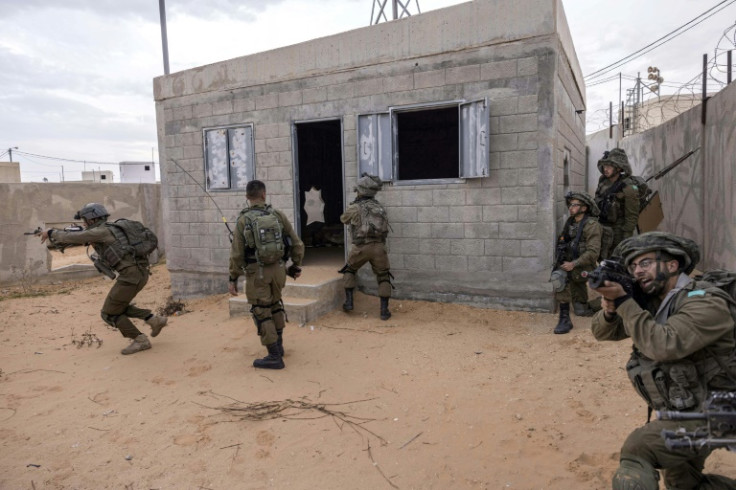
© Copyright AFP 2025. All rights reserved.




















